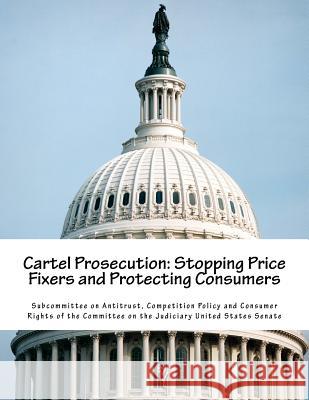Cartel Prosecution: Stopping Price Fixers and Protecting Consumers » książka
Cartel Prosecution: Stopping Price Fixers and Protecting Consumers
ISBN-13: 9781518670312 / Angielski / Miękka / 2015 / 110 str.
Under the antitrust law, competitors cannot get together and form a cartel to agree on what prices to charge their consumers. Price fixing is not only a crime; it is also a tax on businesses, consumers, and innovation. Price fixing can come in various forms. It can involve agreements to set an actual price or agreements to limit output. It can involve agreements not to compete, such as rigging a competitive bidding process or dividing up a market between competitors. Cartels have no purpose other than to rob consumers. As Justice Scalia wrote in a 2004 Supreme Court decision, cartels are "the supreme evil of antitrust." Anyone who bought a TV, computer, or other device with an LCD screen between roughly 2001 and 2006 was a victim of price fixing. Executives from several manufacturers of LCDs met secretly in a hotel room where they hatched a scheme to fix the prices of LCDs for major computer and TV makers in the U.S. and around the globe. They continued to meet for years until one of the cartel members, fearing detection, notified the DOJ's Antitrust Division in order to avoid criminal liability by cooperating with prosecutors. So far, the Justice Department has locked up 13 executives and fined participating companies a total of $1.39 billion.
Zawartość książki może nie spełniać oczekiwań – reklamacje nie obejmują treści, która mogła nie być redakcyjnie ani merytorycznie opracowana.











